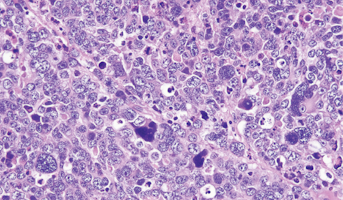Brian Rood
Washington, D.C. USA
Children’s National Hospital

About
Medical Director, Brain Tumor Institute
Children’s National Hospital
Brian R. Rood, MD, is an Associate Professor of Pediatrics in the Center for Cancer and Blood Disorders at Children’s National Hospital whose primary clinical focus is pediatric neuro-oncology. Dr. Rood joined the faculty of Children’s National in 2002 after completing a fellowship in Pediatric Hematology/Oncology as well as a research fellowship in the molecular biology of brain tumors, both at Children’s National and Children’s National Research Institute.
Dr. Rood is the Medical Director of Brain Tumor Institute at Children’s National and cares for brain tumor patients on the inpatient oncology ward and in the outpatient clinic. He is co-principal investigator with Eugene Hwang, M.D., of the Pediatric Brain Tumor Consortium clinical trial program at Children’s National and runs an active molecular biology and proteogenomics lab in the Center for Cancer and Immunology Research of the Children’s National Research Institute. His lab is focused on investigating the proteome of medulloblastoma, the most common malignant brain tumor of childhood, in order to detect unique proteins resulting from genomic aberrations in the tumor cells. These proteins can be used as drug targets, neoantigens for T cell immunotherapies and tumor specific biomarkers that reflect the presence of residual or recurrent cancer cells. Dr. Rood also is working to identify microsatellite markers in a person’s DNA that predict the risk of developing different kinds of brain tumors.
Dr. Rood has two children. His favorite past times include designing and building furniture, sailing, reading, and playing the mandolin.

Children’s National Hospital
scientific
Projects

Data
Specimen
Planning
Proteomic Analysis of CBTN Cell Lines
Using cell lines provided by the Children’s Brain Tumor Network, researchers will attempt to build resources used to develop effective treatments and predict the treatment outcomes of pediatric brain tumor patients.
HGG, (AT/RT)

Roger Reddel

Data
Specimen
Ongoing
Children's Brain Tumor Network Pediatric Brain Tumor Proteomics Pilot
Pediatric brain tumors are the leading cause of disease related death in children. Major factors contributing to treatment failures for children with brain tumors include: i) the lack of comprehensive molecular description of the disease and an associated dearth of integration of the tumors’ biologi
Craniopharyngioma, Medulloblastoma, HGG, (AT/RT), LGG, Ependymoma, Ganglioglioma, DNET, Schwannoma

Adam Resnick

Data
Specimen
Ongoing
Integrative Functional Genomics of Recurrent Childhood Medulloblastoma
Medulloblastoma relapse is unfortunately common and leaves patients with a poor prognosis. Researchers will use tumor samples and data provided by the Children’s Brain Tumor Network to better understand medulloblastoma relapse, how tumors evolve, and the mechanisms of metastasis in an effort to design effective therapeutic strategies.
Medulloblastoma

Javad Nazarian

Data
Ongoing
Comparison of CBTN Patient Data with Molecularly-Defined Stem Cell Models of Pediatric Brain Tumors
Preclinical models are a common way for researchers to study tumor types as well as test diagnostics and therapies. Researchers seek to validate their preclinical models for malignant pediatric tumors through comparison to patient-derived tumor data housed in the Pediatric Brain Tumor Atlas.
Medulloblastoma, HGG, DIPG, Choroid Plexus Tumors

Specimen
Ongoing
Molecular Characterization of Pediatric Brain Tumor Subjects and Trios within the Pediatric Brain Tumor Atlas
We have not yet discovered why the vast majority of children develop brain cancer. Utilizing CBTN data and Kids First data resources, researchers at CBTN are working to answer questions about the cause of pediatric brain tumors.
All Brain Tumor Types

Data
Specimen
Ongoing
Proteogenomic Identification of Structural Variations
Changes to DNA that can give rise to cancers often create fusion proteins, proteins that may be useful as therapeutic targets. Using data from the Pediatric Brain Tumor Atlas, researchers will analyze for the presence of such proteins in an effort to advance treatment options for pediatric brain cancers.
Medulloblastoma, DIPG

Brian Rood

Data
Ongoing
Germline and Somatic Microsatellite Genotypes in Pediatric Brain Tumors
Studies have shown a link between microsatellites, repeating units of DNA, and the development of several cancer types. Researchers will access the Pediatric Brain Tumor Atlas in an effort to identify the location of microsatellites and deepen the understanding of their connection to cancer development across brain tumor types.
All Brain Tumor Types

Brian Rood
related



